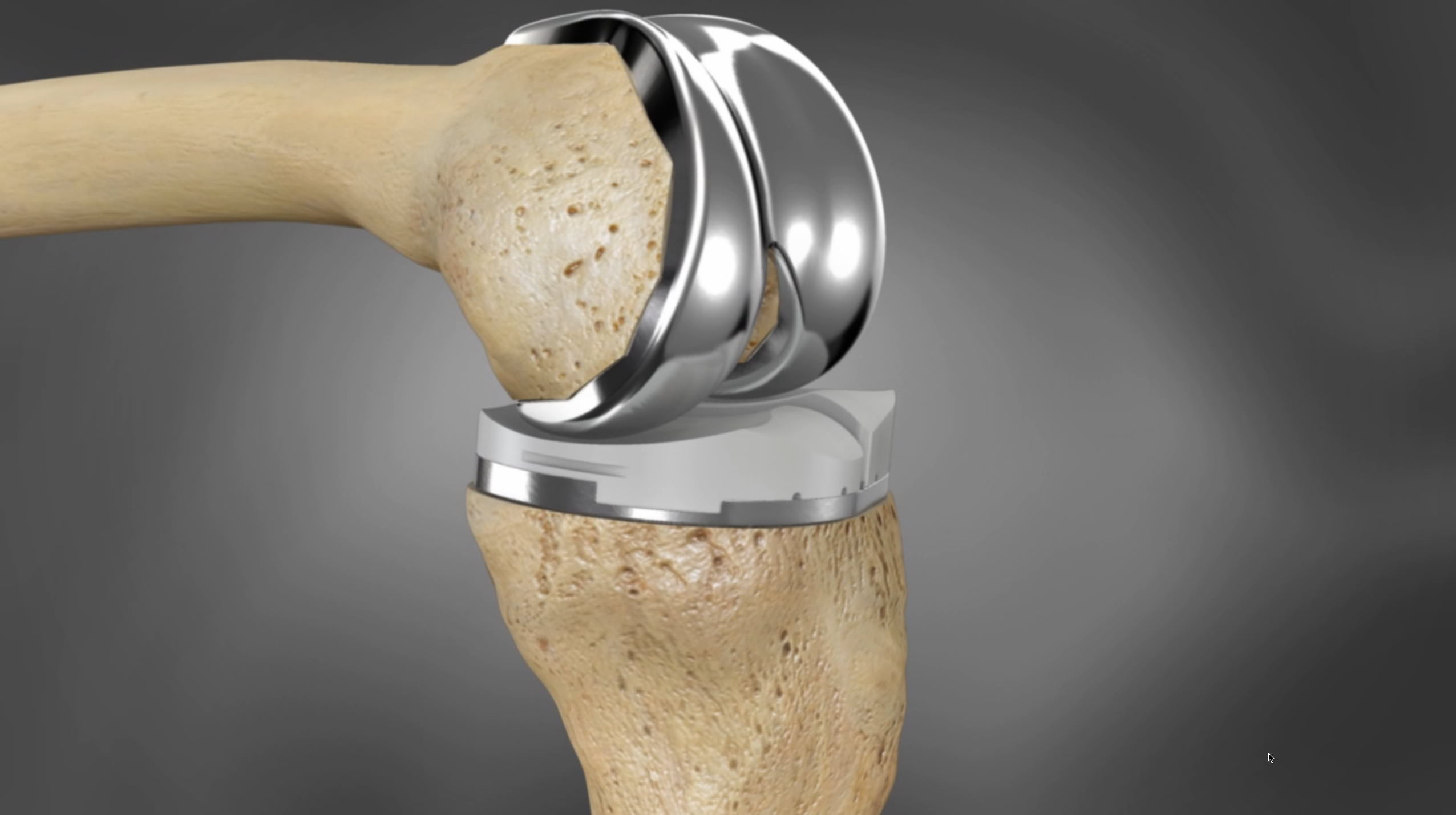 Nature’s peace will flow into you as sunshine flows into trees. The winds will blow their own freshness into you, and the storms their energy, while cares will drop off like autumn leaves.
Nature’s peace will flow into you as sunshine flows into trees. The winds will blow their own freshness into you, and the storms their energy, while cares will drop off like autumn leaves.
-John Muir, on hiking
- - - - - - - - - -
Are you sure that I can do this with my knee replacement?
"J" was in his fifties. While technically a grandfather, he was no grandpa. J suffered a traumatic sports related knee injury in his twenties but continued to be active through his adult life. This caused accelerated wear and tear on his knee. A quick assessment revealed that despite having a knee replacement a few years ago, he possessed far better quality of motion than the average adult.
Prior to surgery, J loved being active. He lifted (serious resistance exercise with free weights) consistently. He hiked and bicycled and coached and played sports with his children. He lamented that he missed these activities.
Well why aren't you doing them?
After completing my assessment and watching him perform a few basic functional exercises, I saw no reason why he should refrain. As J performed a set of well controlled repetitions of an exercise we call "single leg hip hinge," J mentioned how much he could deadlift in his thirties and forties.
It's likely that you could rather easily get close to that.
Sheeat no way! With a false knee?
There was a definite twinkle in Js eye. And it's true. Being that Js general health and quality of movement were excellent, and he had an extensive history with serious resistance training, and the numbers (deadlift weight) he mentioned were rather reasonable, there is little reason why he should not try it. I would recommend attention to detail and a slow progress slowly, of course.
But my [previous] physical therapists warned me about twisting and high impact activities.
While deadlifts will have a relatively high load on the knee, the range of motion is limited. And you will place more impact and twisting force on your knee when you walk down a set of stairs or around a corner.
If J was a golfer I would have asked why most doctors and therapists give golfing a free pass. I often wonder why this is deemed an acceptable means of moderate impact and twisting forces on replaced knees.
But my orthopedist was concerned that having the knee replaced at a relatively young age may cause the knee to wear out over the years.
You have a 90 to 95% chance that your knee replacement will last 10 years, and an 80 to 90% chance that it will last for over 20 years. And since joint replacements of today are even better than those performed 10 to 25 years ago, it is widely believed that the prospects are even better.
I would take those chances. And by the years of arthritic development in my right hip, it is likely that someday I will. Because there's also the chance that something could happen, including further age, that prevents getting moneys worth out of the replaced part.
I believe that going for a hike outside, in the variable terrain of the woods, is living. I believe that a few challenging sets of dead lifts are nearly miraculous. I would risk a possible second knee surgery in exchange for even a few occasions of being actively engaged with my kids. And I believe that J feels much the same.
I'm just not sure.
Don't get me wrong. I'm not trying to tell you that your knee won't wear out.
It's Js call, of course. He may take every measure to protect and serve the replaced knee. He may partake of acceptable activities such as golfing and riding the recumbent bike. He may "sit this one out" when it comes times to play catch with his grandchildren.
And one day, he may go to the grave with a shiny and well preserved replaced knee.
No comments:
Post a Comment